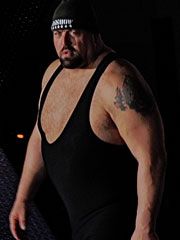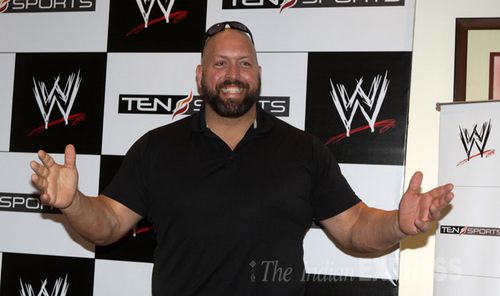
Big Show talks about changes in WWE since the Attitude Era and more

DNA interviewed The Big Show during his promotional tour in India earlier this week. During the interview, Show discussed how the business has changed since he started and more.
Here are some excerpts from the interview:
You’re a big guy, You definitely scare a lot of people..
I try not to scare anybody. I think one time somebody pissed in their pants, but that was a complete misunderstanding. My intimidation is part of my job, it’s not who I am. I don’t run around acting like a lunatic and scaring people.
You’ve won almost everything there is to win, what makes you keep continuing?
For me, it’s the performance part of it. I have a room in my house that is full of boxes, championship titles and memorabilia, but I told my wife not to put it up because I’m still looking forward to the next match, the next performance for I love doing what I do. I have four years on this contract then I’m going to retire at 46. Healthy or not, I’m done at 46. so between now and 46, I just want to enjoy my work. I have a full schedule, just like when I started out.
Being a champion, what is your role now?
Sometimes people think it’s cool to be a champion, but being a champion is a lot more work actually. Yes it’s an ego trip to be a champion, but there is a lot more involved in it. My role now is to establish the younger guys and help them find out who they are as a talent.
You were a great basketball player. What made you take up wrestling?
Wow, that was a long time ago. I lost my heart playing basketball. As a kid, all I wanted to do was to play basketball. But I lost my coach, my father and my grandfather all in a year and a half. I lost my way a little bit. I got a second chance through wrestling. It was something I loved watching with my dad. I never thought I would get into the ring, but when I realised I could do it, I just did it.
WWE is all about telling a story. So how important is it to get emotionally attached to the audience?
It’s very important for me to go out there and get emotionally attached with the crowd in what we doing. Many times we do story-lines that might not make sense and that makes the match harder because the audience doesn’t connect to it. It’s just like a three-act play. It should have a beginning, a middle and an end. When things are done right, and it gets the desired effect, its an overwhelming feeling, but sometimes we tell a story and the fans don’t like it and it’s so frustrating.
What’s the most satisfying part of your job?
The most satisfying part is telling your story. I tell the kids that there are three golden rules to being successful. Get the match over, get the opponent over and you’ll yourself over. Because this is what
we do, we’re telling stories.
How do you mentally prepare yourself to get hurt?
It’s not made for everybody. there are some people who can sit down and do quantum physics, I can’t. I can get punched in the face and be okay with it. That’s why I do what do.
How much do you train?
I usually train for an hour to an hour a half everyday. Even if I’m tired, I try to move around and keep myself active.
How has WWE evolved over the years?
The business has completely evolved. when I started in 1995, it was like rock and roll. We couldn’t do anything wrong. The arenas were sold out. Our boss took good advantage of that and started building for the future. WWE went from teenage material to young adult to more family oriented which I think is a great move for our company. Nowadays it’s hard to get families together to watch a programme. Our product is something that everyone can watch. I like to shake my big butt and make the kids laugh. it’s a good feeling.
How is the camaraderie when you’ll are not in the ring?
It’s just like any other job. You don’t necessarily like everybody you work with. There are some you just don’t. Some guys are you’re bitter rivals on the television but in real life your just good friends. At the same time, there may be someone in the ring that you high 5, and he may be my tag team, but after the show, we’re enemies. The great thing is that we don’t let our personal differences come in the way of our profession.